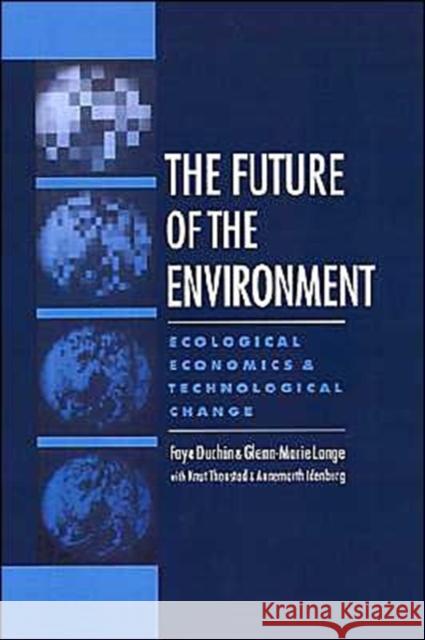The Future of the Environment: Ecological Economics and Technological Change » książka
topmenu
The Future of the Environment: Ecological Economics and Technological Change
ISBN-13: 9780195085747 / Angielski / Twarda / 1995 / 240 str.
One of the most important and complex problems facing both developing and industrialized nations is how to sustain economic growth without harming the environment. Faye Duchin and Glenn-Marie Lange address this issue in a practical and realistic way: through a detailed evaluation of the well-known approach to sustainable development outlined in the Brundtland Report, Our Common Future.
Taking issue with the Brundtland Report's optimistic and widely accepted assumptions, the authors show that the positive effects of recycling, increased fuel-efficiency, and other technological adjustments will not go far enough to provide for truly sustainable development in the long term. Through a new, broad-based empirical analysis, they argue that unless there are significant changes in lifestyles and the use of technologies, continued environmental degradation cannot be avoided. They warn that the trend of making only slight adjustments in the use of technologies, while feasible from an economic point of view for industrialized nations, will undoubtedly lead to further environmental damage. In addition to offering a clear and unflinching look at what development is really doing to the global environment, the unique conceptual framework developed for this analysis provides an invaluable basis for analysis for the new, multidisciplinary field of ecological economics. Duchin and Lange describe how this new methodology will enable economists and policy-makers to evaluate our options for the future, and choose those that most effectively reduce environmental degradation and achieve sustainable development. The book will appeal to economists, environmental scientists and activists, policy analysts, and ecologists, as well as the general reader with an interest in the sustainable development of our environment.










